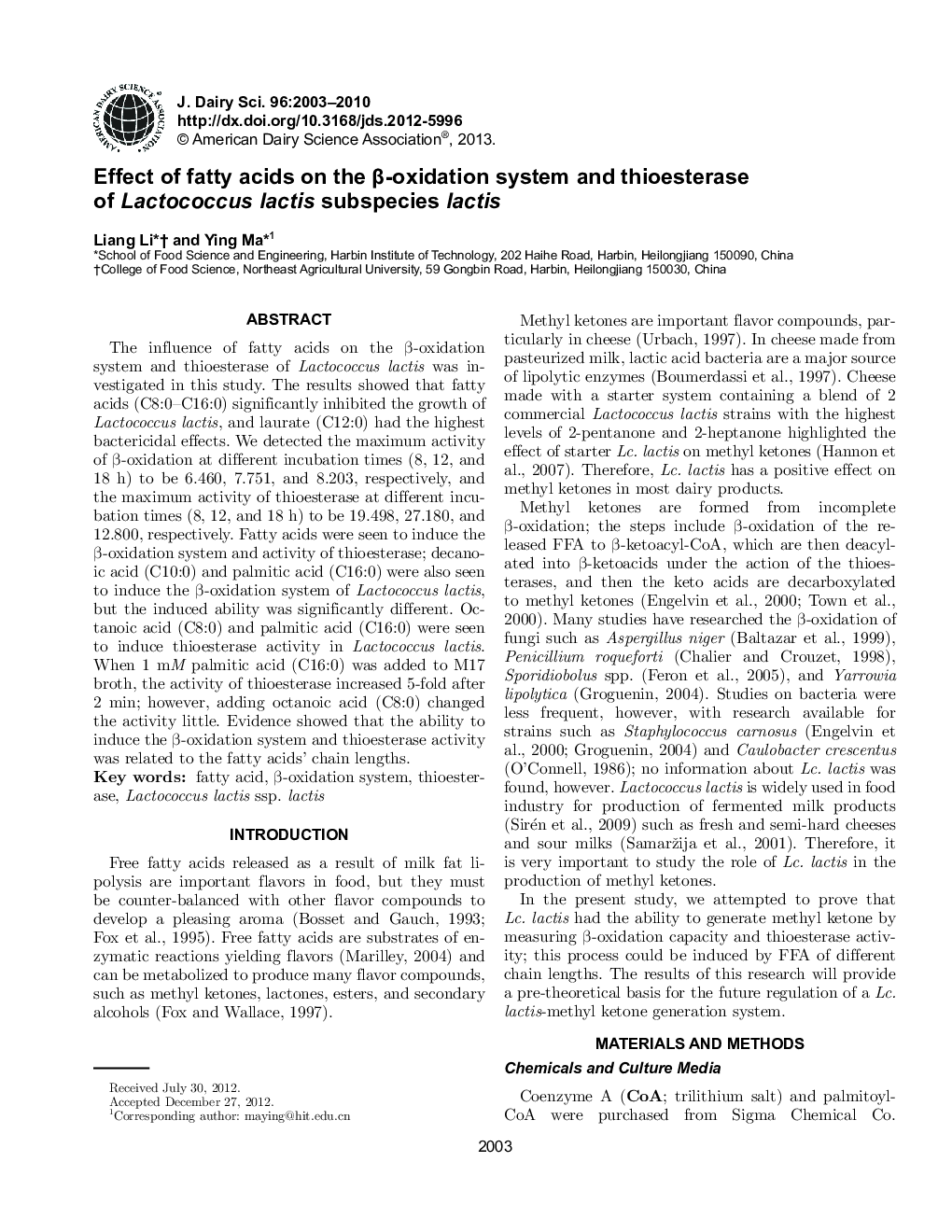| Article ID | Journal | Published Year | Pages | File Type |
|---|---|---|---|---|
| 10978947 | Journal of Dairy Science | 2010 | 8 Pages |
Abstract
The influence of fatty acids on the β-oxidation system and thioesterase of Lactococcus lactis was investigated in this study. The results showed that fatty acids (C8:0-C16:0) significantly inhibited the growth of Lactococcus lactis, and laurate (C12:0) had the highest bactericidal effects. We detected the maximum activity of β-oxidation at different incubation times (8, 12, and 18 h) to be 6.460, 7.751, and 8.203, respectively, and the maximum activity of thioesterase at different incubation times (8, 12, and 18 h) to be 19.498, 27.180, and 12.800, respectively. Fatty acids were seen to induce the β-oxidation system and activity of thioesterase; decanoic acid (C10:0) and palmitic acid (C16:0) were also seen to induce the β-oxidation system of Lactococcus lactis, but the induced ability was significantly different. Octanoic acid (C8:0) and palmitic acid (C16:0) were seen to induce thioesterase activity in Lactococcus lactis. When 1 mM palmitic acid (C16:0) was added to M17 broth, the activity of thioesterase increased 5-fold after 2 min; however, adding octanoic acid (C8:0) changed the activity little. Evidence showed that the ability to induce the β-oxidation system and thioesterase activity was related to the fatty acids' chain lengths.
Related Topics
Life Sciences
Agricultural and Biological Sciences
Animal Science and Zoology
Authors
Liang Li, Ying Ma,
